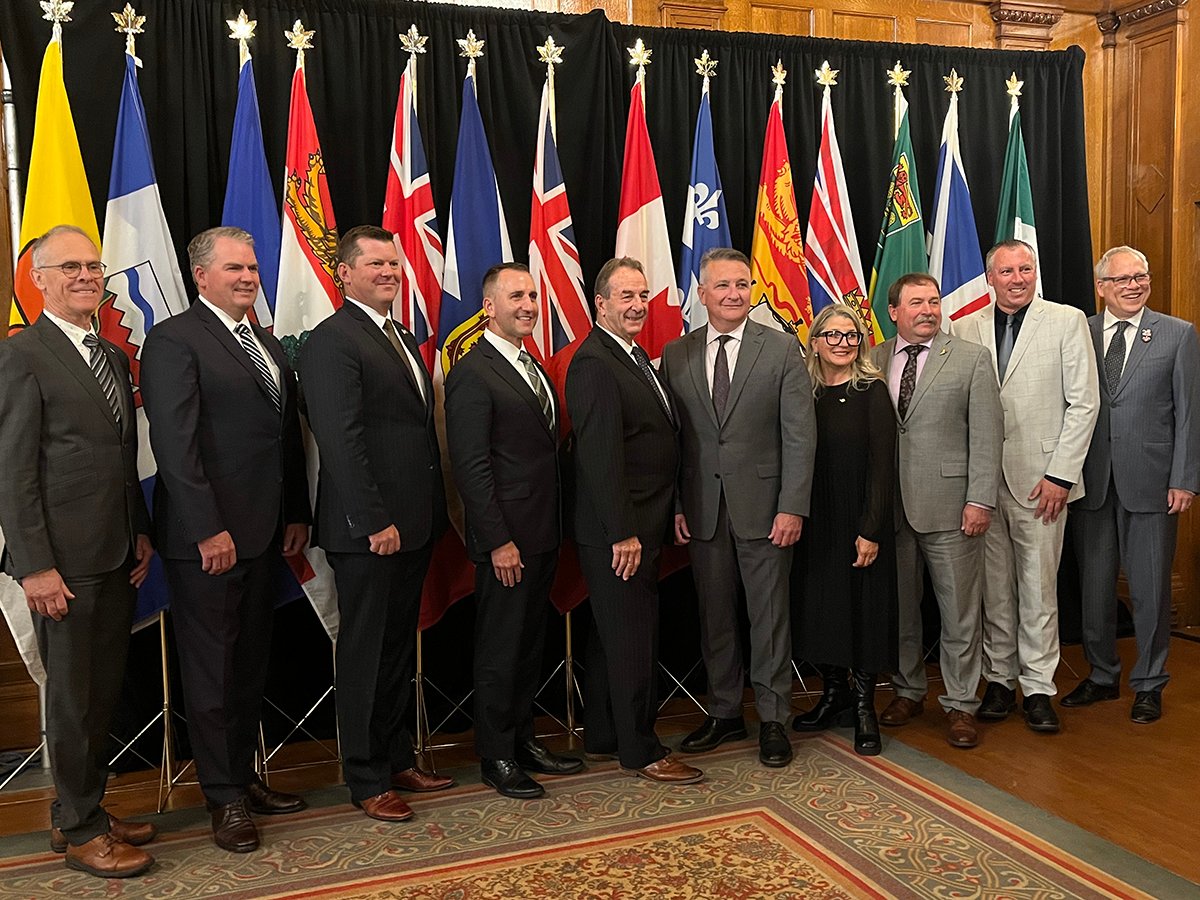WINNIPEG – Another grain industry official is calling on Ottawa to hold on to its 13,000 grain hopper cars.
United Grain Growers Ltd. president Ted Allen says the federal government has bungled the rail car issue and should cancel its plans to sell the fleet.
“We’re in a mess right now over these cars which could lead to some very serious operational difficulties down the road,” he said in an interview during UGG’s recent annual meeting.
“My advice to anyone in government who will listen is to keep the cars, take the 75 cent a tonne revenue stream and depreciate them away. Let them die a natural death.”
Read Also

Ag ministers hear request for regulatory change, more infrastructure development
Canada’s agriculture ministers met today in Winnipeg after postponing their usual July in-person meeting due to wildfires.
Allen was referring to a 75 cents per tonne surcharge on freight rates beginning Aug. 1, 1998, designed to help the new owners of the cars recoup some of the purchase cost from farmers.
The federal government announced earlier this year that it would sell the 13,000 covered cars. A bidding process is under way, with the two national railways, a coalition of prairie farm groups, several grain shippers and car leasing firms all showing interest.
The three prairie wheat pools is recently urged the government not to sell the cars for five years, saying such a delay would provide time to clear up confusion now clouding the grain transportation picture.
By then, a planned review of the new transportation rules will have been completed, and the agreement that gives the railways right of first refusal to buy the cars will have expired.
Allen said the cars are more than half way through their useful life, adding they may become obsolete even before they wear out, as new higher capacity cars are produced and become the industry standard.
If the government lets the cars “die a natural death”, he said, they will gradually be replaced as the grain transportation system moves to a more commercial environment.
The hopper car issue sparked a lively exchange during the annual meeting of UGG delegates here two weeks ago, as Ray Miller, a farmer from Melville, Sask., took Allen to task over the company’s position on car ownership.
He questioned why company management has favored selling the cars to the railways rather than to the farmer coalition.
“We farmers already own them and we paid for them,” he said. “Where did you get the authority to recommend that the government sell them to the railways and the farmers pay for them?”
Allen responded that UGG has not favored selling the cars to the railways.
Supported sale to railway
However, UGG was part of the Senior Executive Officers group that recommended the cars be sold to the railways for $100 million, about 25 percent of estimated market value. That proposal upset many farmers and led to formation of the farmer coalition.
Chief executive officer Brian Hayward told delegates the recommendation was designed to limit the freight rate increase to farmers that would arise from the sale of the cars.
When Miller tried to carry on the discussion, he was ruled out of order.
Delegates eventually passed two resolutions dealing with the cars. One asked the government to release complete information about the bids so farmers and the public are fully informed about the process. The other asked that the cars be sold for “fair market value.”
UGG member Warren Jolly of Mossbank, Sask., said selling the cars for less than market value could be seen as a subsidy and would invite trade action from the U.S. It could also be an issue of concern for Canadian taxpayers.
“If they’re worth $500 million, sell them for $500 million. Don’t give them away for $100 million,” he said.
Hayward said the value of the cars depends greatly on the regulatory framework in which they’ll be operating. If there are no car allocation rules and no maximum freight rates, the cars are worth more to the owner than if their use is restricted to Western Canada and rates are capped.














